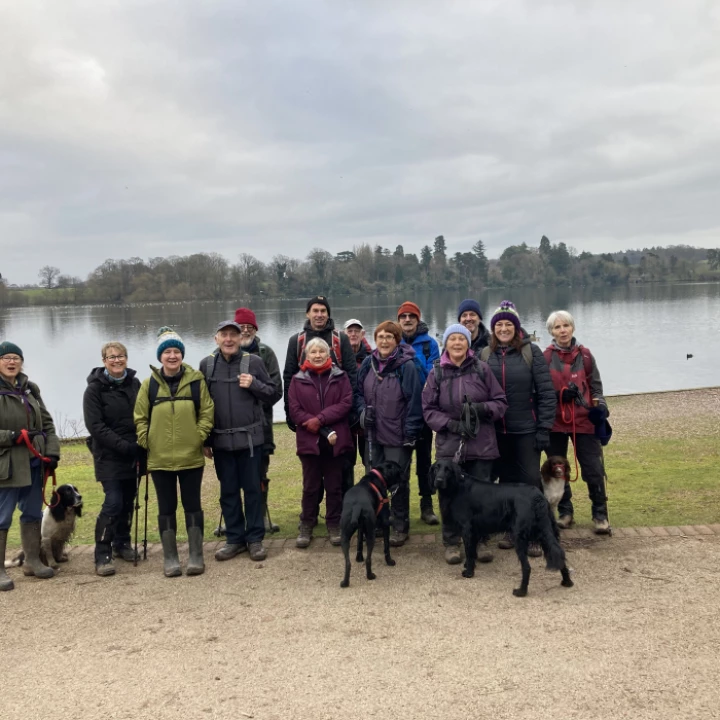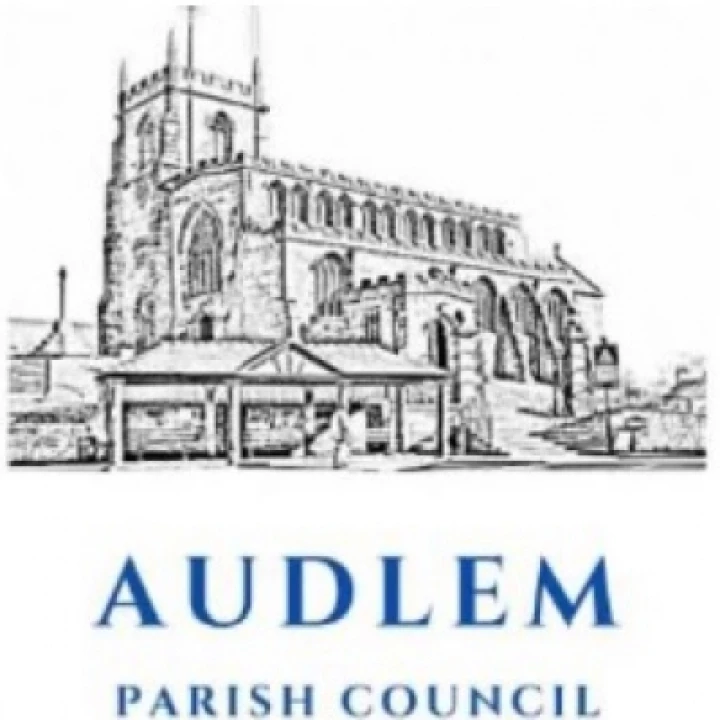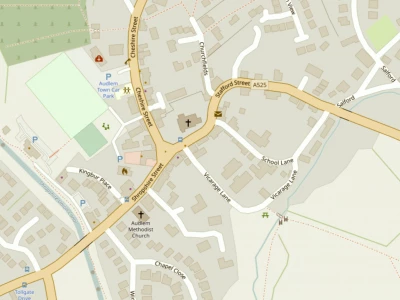







I am always surprised and pleased when someone comes to me to say that they have enjoyed a piece I have written for the village website. It is always gratifying.
The piece I wrote at the beginning of May on the topic of cuts and Austerity certainly generated more comment than I am used to. There were a few dissenting voices but only three or four. My editor tells me that 856 people took the trouble to read it. What more could I ask for?
However, I am in my fiftieth year as a pilot. You might not think that that is noteworthy but I am conceited enough to think it might be.
If I had been flying for the airlines I would probably have become a cadet at say 20 years and retired at 55 years but here I am at 78 and still enjoying flying and I enjoy maintaining the aircraft.
My son (who has been 30 years a pilot) rather cheekily says that I was in the same student group as Pontious Pilot. I don't like cheeky children, indeed I have to remind him that I accomplished my first solo on the same day that he took his first tottering steps.
My fifty years have been accomplished despite the fact that the Royal Air Force rejected me on health grounds. They must have concluded that I was not fit enough to be trusted with one of their precious machines. I find it ironic that they haven't even got an Air Marshall still flying after fifty years.
A good landing
A good landing is defined as one which you walk away from. I have walked away from all my landings. Some have been interesting, some have been inelegant, some have been downright dangerous. It would be foolish to tell you that I could describe, even a few of them, in this short piece. However, I can write more short pieces if you want me to.
As a Student pilot and flying a work battered old Auster, my instructor has been heard to say "FARR that wasn't a landing, it was an arrival". Incidentally my early 1955 lessons were charged to me at £7 per hour, including the fee for the instructor. I am not familiar with modern tuition rates, but I can imagine above £100 per hour.
Instructors are a funny breed. They all have a fistful of mantras that they constantly repeat. Herewith a few samples:
- "The three things most useless to a pilot are 1. Fuel in the Bowser 2. Altitude above him 3. Runway behind him.
- Then there was the one who preached: " At the final 500 foot turn add five extra Knots for the misses and kids". This of course referred to failing to have enough height to recover from a stall. -Another! " FARR, use your superior judgement to avoid having to demonstrate your superior skill. -And another: "The only occasion when you have too much fuel is when you are on fire".
My student pilot days took place at Wolverhampton municipal airport. It is covered in houses now. But it was a long time ago. To give it some perspective Birmingham Airport was in those days in its infancy and was called 'Elmdon.' And was mostly for charter flights.
East Midlands Airport was a wartime strip of concrete with three Portacabins and took only charter flights and the import of flowers from the Channel Islands.
To return to landings.
One of my more interesting landings occurred at Copenhagen Denmark. Anne and I arrived one evening at Sonderbourg Jutland after a sea crossing and an interesting though tiring day. Next morning we prepared to take off for Copenhagen.
Now, the single runway at Sonderbourg was surrounded on two sides by sea water. Therefore it was imperative that the aircraft should be airborne upon reaching the end of the runway. This aircraft had a peculiar rudder tensioning mechanism which slipped out of gear at the critical moment of take-off.
There was not the remotest possibility of stopping without going into the sea and the prospect of trying to complete a circuit and landing back on did not appeal with the sea being so close to the edge of the runway. So, I elected to go on to Scholunde, Copenhagen. It was a trying hour and quarter with both feet hard on the right rudder but sweating profusely (not perspiring), I made a safe landing. My legs had cramps for days afterwards, though I soon snicked the rudder cables back into place.
Then there was the occasion when Anne and I flew for an afternoon "jolly" to Sywell, Northampton. When we arrived over the field we could see that a large crowd had gathered on the airfield. Being a little curious and not really believing that they were there to welcome us, I called over the radio for landing instructions. The rather terse reply came back from Air Traffic Control:
"Poppa Foxtrot (That was us ), we are using runway 23 the altimeter setting is 1013 and we are expecting the Red Arrows in two minutes. Will you expedite?"
Then there was the landing at Stauning with a thirty-five knot 90 degree cross wind. Perhaps I had better leave that for another time.
We shall no doubt return to landings. But for the moment we move on.
For the first seven years of my pilotage I flew from a "Designated" airfield. This meant that not only had we very long runways, we also had the dubious benefit of Fire Tenders, fuel at the pumps, all kinds of emergency facilities and instructors and proprietors to guard and guide us from our own inadequacies and tell us when we could or could not fly.
Since then we have operated from a farm field which we sometimes had to share with Cows, Sheep, Tractors and grass in various states and conditions. We call it Austerson Dairy Farm International.
Sheep, I find, are the easiest to deal with. Should we arrive back home (at Austerson) with 500 sheep spread across our runway, it is relatively easy, with a few well aimed low passes to herd them into a corner and make a quick landing.
Cows are not quite so easy but with care they are quite tractable and do rather grudgingly move over. The downside is the cow muck they leave behind which can cover a perfectly respectable aircraft with a most unpleasant material.
Some thoughts on Air Traffic Control
Fifty years ago budding Air Traffic Controllers would be sent to learn to fly before being launched on their new career. In fact, the cost of their flying lessons were subsidised by their training authority. Rolls-Royce adopted a similar practice.
This regime was in my opinion a very sound system, if for no other reason, it ensured that these ATC students had encountered situations that had frightened them. The current crop would be improved if they too had found themselves alone in a dangerous situation and being ordered to do something beyond their level of their skill and experience.
Perhaps they would not sit comfortable and warm in their Ivory Towers issuing orders without thought of what they were doing to a frightened pilot of a small aircraft who is feeling very lonely just then and perhaps reflecting that they are the servants of aviators not the masters.
Perhaps a little anecdote may serve to illustrate my point. On one of my early sea crossings with Anne as my passenger I flew out of Jersey routing North for Hurn, Bournemouth.
For some reason that I never understood Air Traffic ordered my to fly to the French coast before turning North along the Cotentin peninsular. It would have been much simpler to take off and immediately set course North over the sea to Bournmouth.
Trying to do as I had been bidden I flew toward the coast under a lowering cloud ceiling until at about a half mile short of the French coast I found myself at 300 feet (above the sea) flying toward towering cliffs and suddenly into dense cloud and unable to see anything, either sea or cliffs.
This perilous situation came to a head as a small brief gap in the cloud revealed a cliff towering above us and thirty yards out from the Starboard wing. I applied full power and made split arsed turn to Port and when sure I had regained safety I called on the radio to Channel Island control that I intended to revert to my own plan and steer North, back to England. They replied, OK you do that. You might now get my point about being ordered to do something perilous and frightening by someone who had no conscept of what he had commanded me to do.
There have been a few other situations like this but perhaps seniority has enabled me to say a much firmer NO. and to remember that at ALL times the safe conduct of the flight is in the hands of the handling pilot Not Air Traffic Control.
When I read recently that the pilot of an airliner flying over the Java Sea requested a change of height and course in order to avoid a storm cell which lay in wait for him. Apparently Air Traffic Control refused him these changes with the subsequent loss of aircraft and all on board. Why I wonder did he lamely accept that refusal without asserting his right as Captain to choose his flight conditions.
By for now
Geoff
This article is from our news archive. As a result pictures or videos originally associated with it may have been removed and some of the content may no longer be accurate or relevant.
Get In Touch
AudlemOnline is powered by our active community.
Please send us your news and views using the button below:
Email: editor@audlem.org


